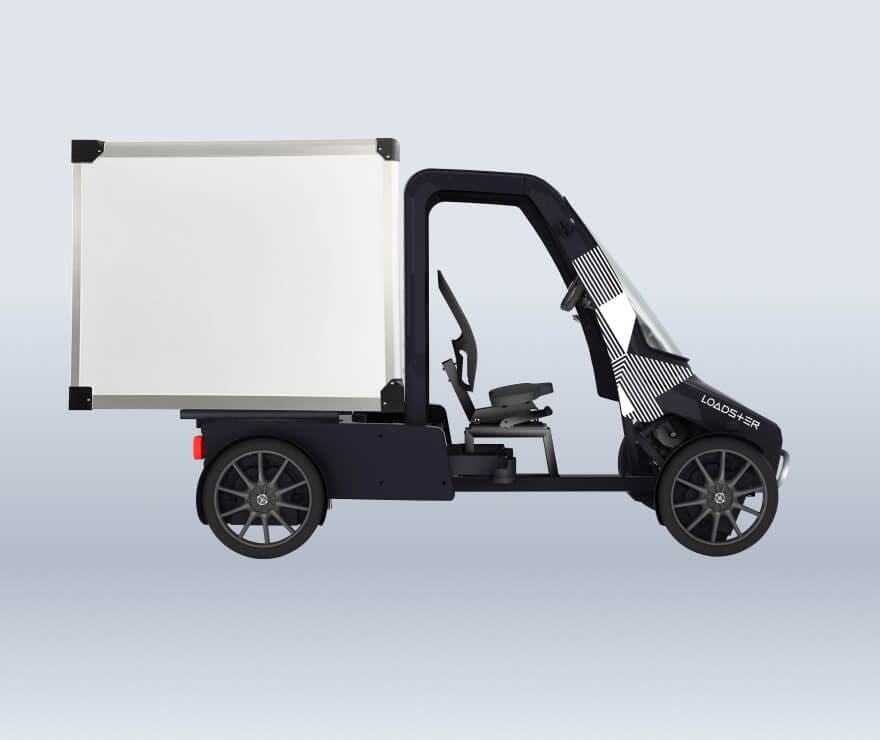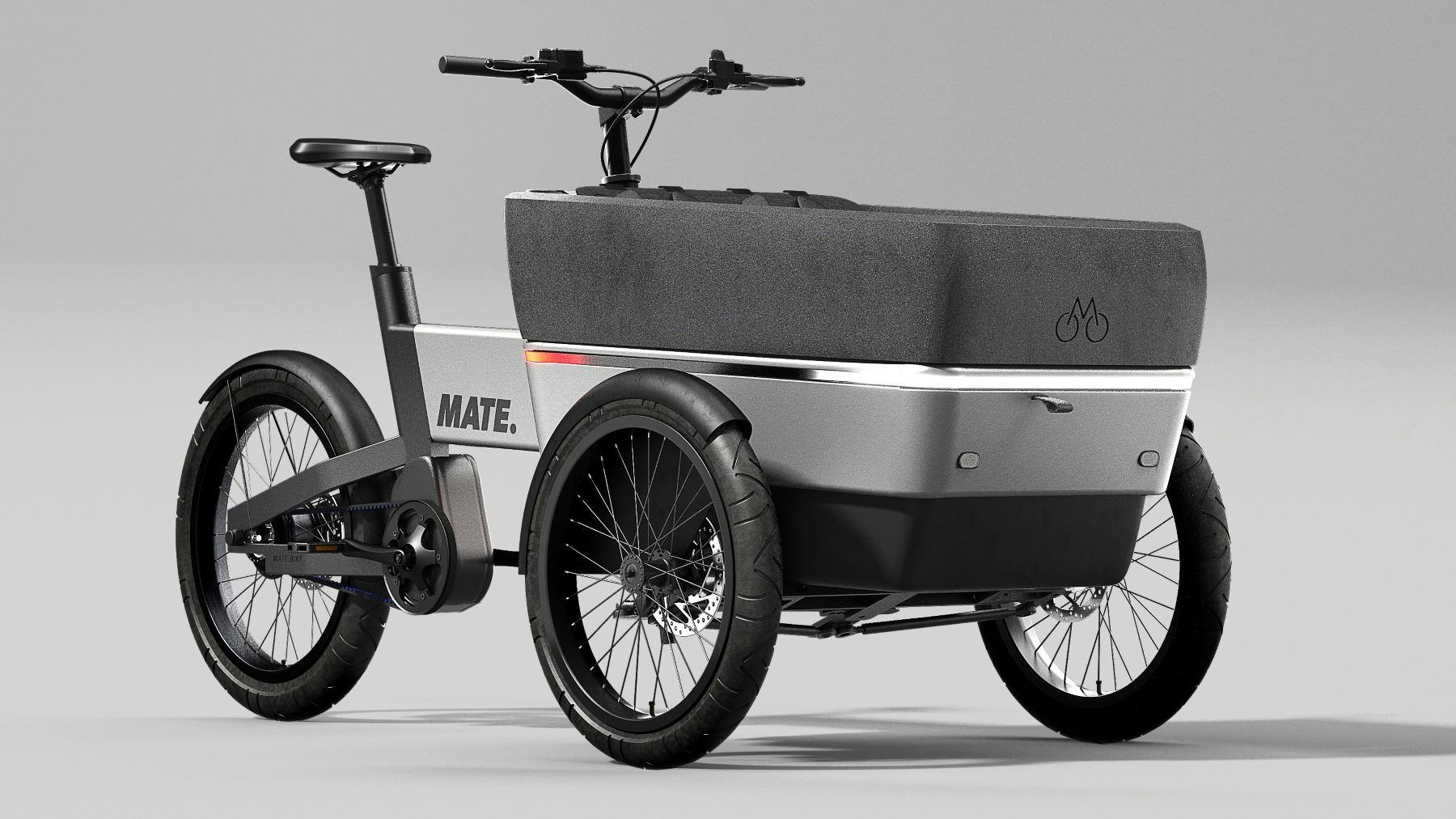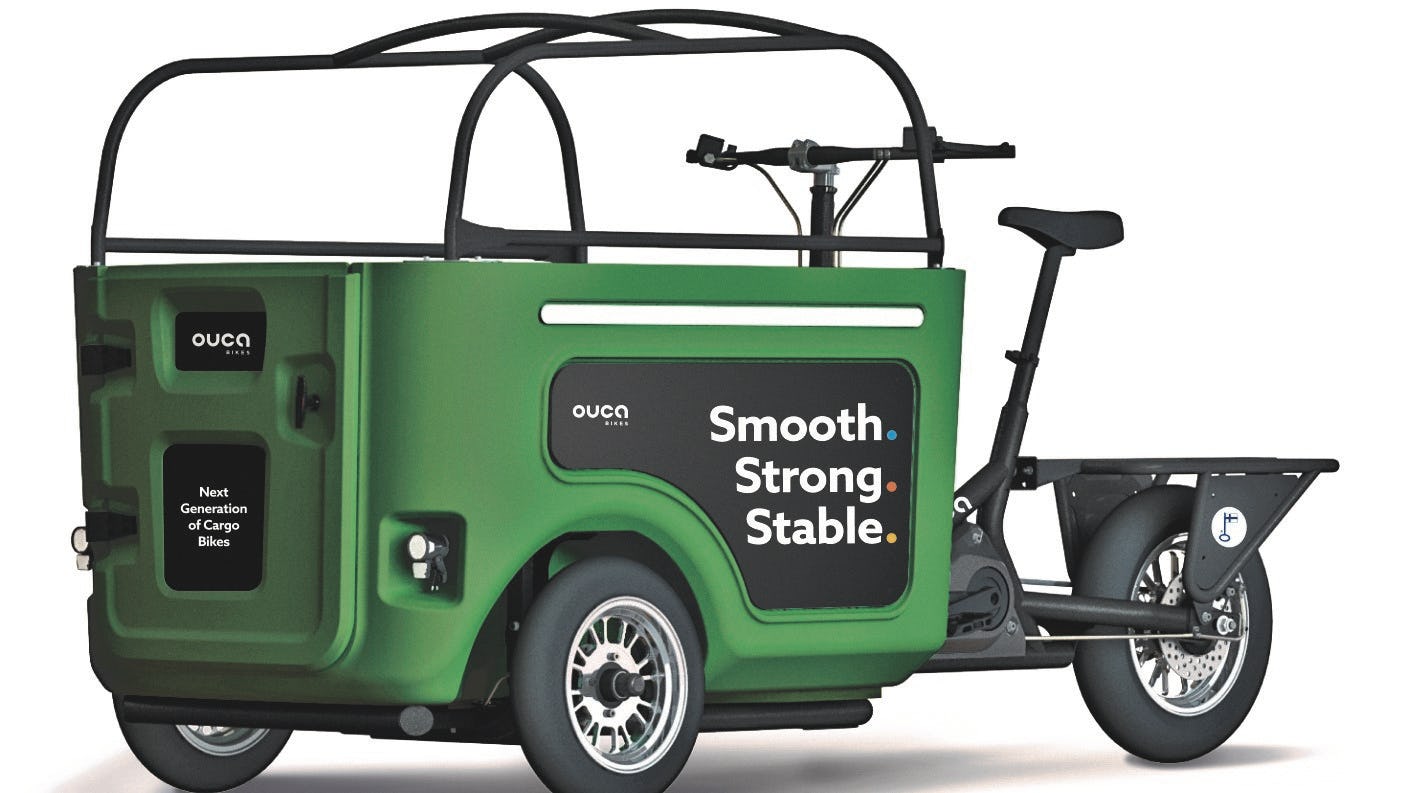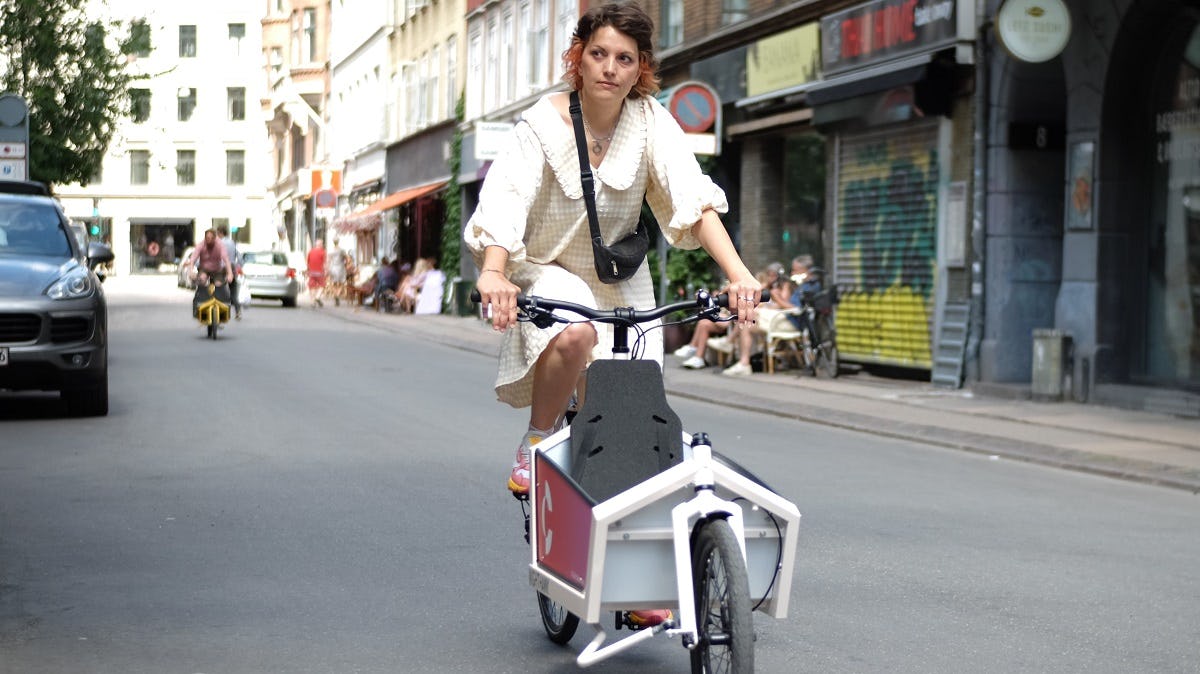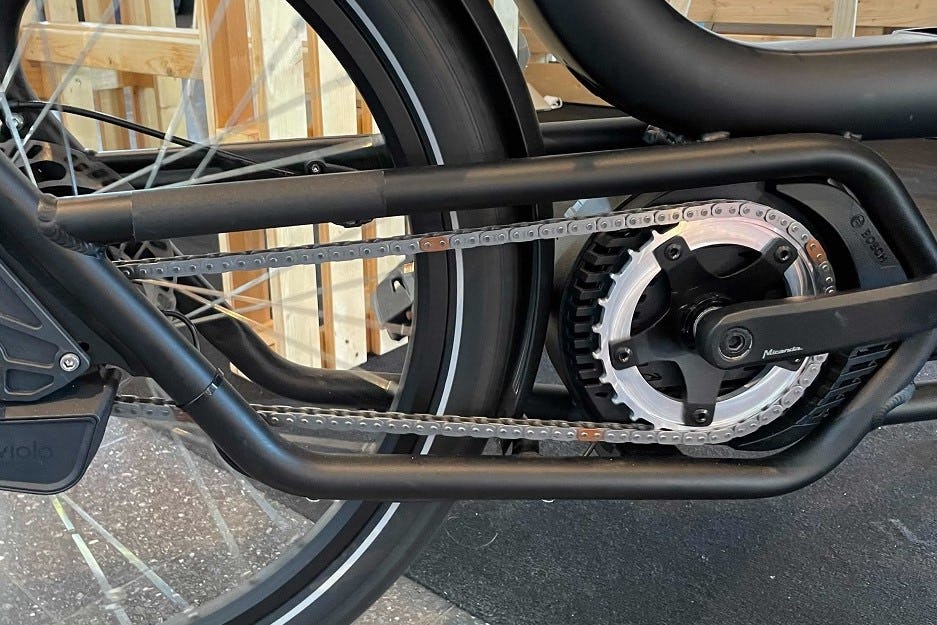Mando Corporation, a tier-1 automotive supplier since 1962, made its grand entry into the bicycle industry in 2012 with the well-known Mando Footloose, the world’s 1st chainless e-bike, which was then described as “the iPhone of cycling” by BikeEurope. However, the technology came too early, says Jeff Chang, general manager of Mando Corporation Europe. “The pedal feeling was not refined enough. We have learned a lot since then and have completely re-engineered the system capitalizing on “Steer by wire” technology from our automotive business unit.
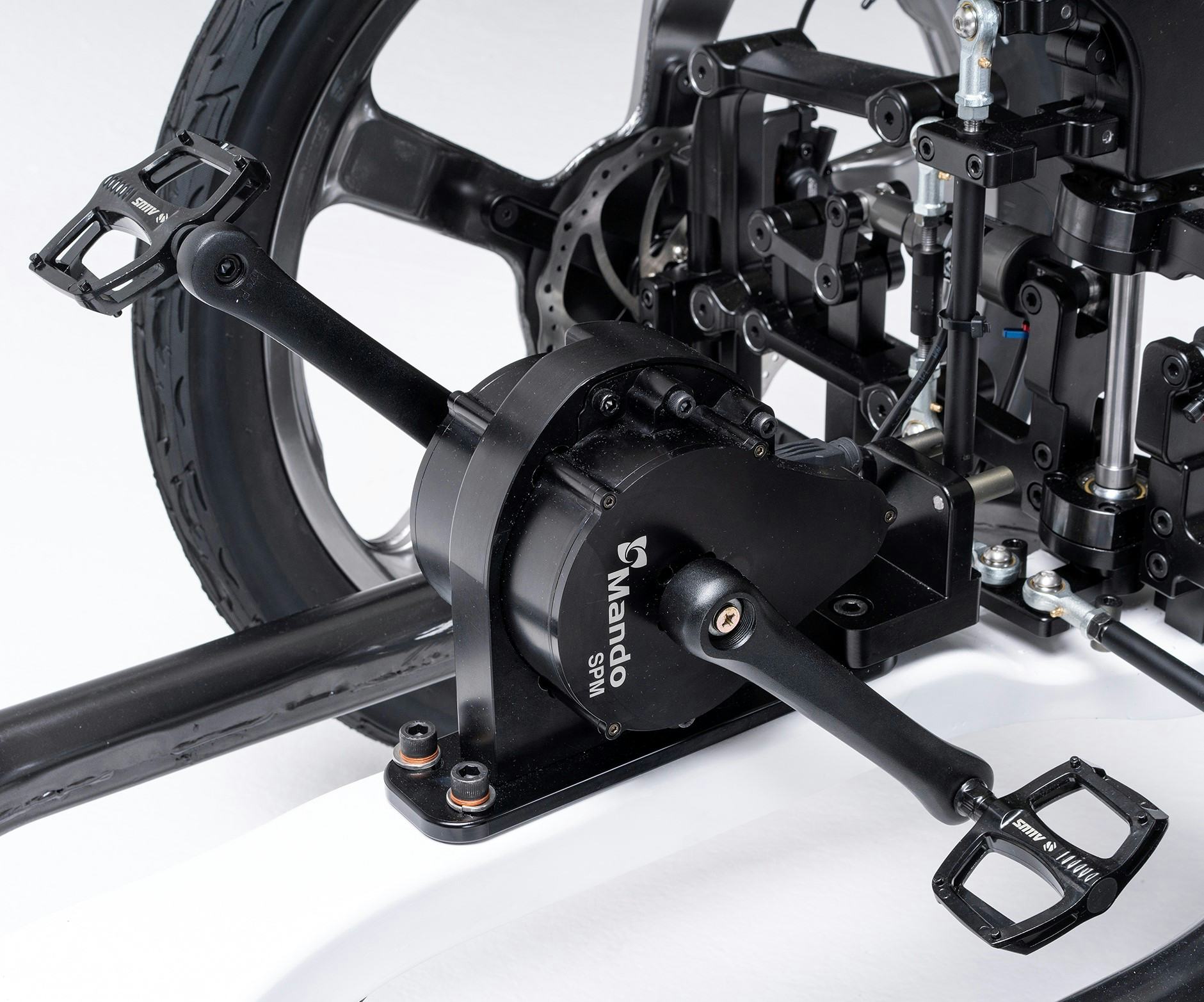
The ultimate platform for e-cargo bikes
The company has developed what is called the SPM Module, a very powerful chainless drive system mainly designed for heavy-duty e-cargo bikes and people carriers. It provides manufacturers with an integrated e-Mobility Module platform that consists of ePedal (alternator), electric motor, battery, wire harness and HMI+HBC. A large number of manufacturers are currently in pilot-testing or already in series production and the market demand for the system has been radically increasing since the European Commission clarified the legal status of the series hybrid system early this year.
One of these customers is CITKAR, the German manufacturer of electrically-powered fourwheeled cargobikes with a cabin and a high payload of up to 235 kg. CITKAR currently builds three versions: the C Pick-up, CITKAR Delivery and CITKAR Delivery Max. These are used by – amongst others – DHL and last-mile dispatchers, as well as for grocery deliveries by alpakas in Germany or Plus supermarkets in the Netherlands. They are available in the UK, the Netherlands, Germany and France.

Advantages
Stefan Räth, CITKAR’s managing director, says his company is using Mando’s technology in all of its pedal-assisted transporters, much to the appreciation of CITKAR’s clients. “Our clients prefer the chainless solution as this technology has significant advantages.” The advantages are for instance, lower total cost of ownership (TCO) thanks to significantly reduced maintenance, superior reliability and ergonomic ride feeling. It also offers a complete design freedom for CITKAR as there are “ZERO” mechanical constraints from crank to propulsion.
“Components have to last and offer low wear, a very high durability and must be of high quality. Therefore we source from experienced automotive or motorcycle suppliers such as Mando, or have custom-made solutions built for us when our inhouse engineering team sees the need for this,” Räth states.
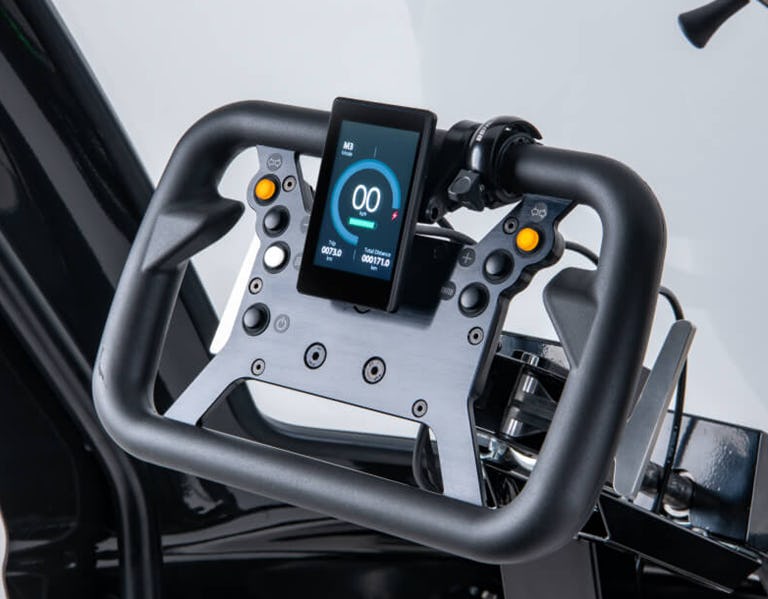
According to Räth, Mando is the ideal technology partner for his company. “Ever since we decided to work with Mando they have been supportive of our requirements and we are satisfied with the overall process. The next step will be Mando scaling up its production to meet the growing demand of customers.”
Indeed, the demand for zero-emission vehicles in cities is growing fast, and companies like CITKAR can meet that demand. “CITKAR is the smart choice for last mile delivery. A compact pedal assisted transporter, allowed on cycle paths without the need for a driver’s license. It gives you unlimited city access to transport goods fast, easy and weatherproof to every doorstep at an ultra-low cost.”
This article is sponsored by Mando Corporation.

